Hamas claims British hostage has died as Israel orders new evacuations of Rafah
Nadav Popplewell’s death unconfirmed as the Israeli army issues a large-scale evacuation order for parts of northern Gaza

Your support helps us to tell the story
From reproductive rights to climate change to Big Tech, The Independent is on the ground when the story is developing. Whether it's investigating the financials of Elon Musk's pro-Trump PAC or producing our latest documentary, 'The A Word', which shines a light on the American women fighting for reproductive rights, we know how important it is to parse out the facts from the messaging.
At such a critical moment in US history, we need reporters on the ground. Your donation allows us to keep sending journalists to speak to both sides of the story.
The Independent is trusted by Americans across the entire political spectrum. And unlike many other quality news outlets, we choose not to lock Americans out of our reporting and analysis with paywalls. We believe quality journalism should be available to everyone, paid for by those who can afford it.
Your support makes all the difference.A British-Israeli hostage held in Gaza has died, Hamas claimed on Saturday – as Israeli forces ordered further evacuations of the strip, forcing tens of thousands of Palestinians to leave their homes.
Nadav Popplewell, 51, who was taken hostage during the 7 October attack on Israel, died of wounds caused by an Israeli airstrike a month ago.
The Palestinian military group provided no evidence to support the claim, which has also not been verified by Israel or Mr Popplewell’s hometown of Nirim.
But the UK’s Foreign, Commonwealth and Development Office is investigating and released a statement in which it said “our thoughts are with his family at this extremely distressing time”.
Yorkshire-born Mr Popplewell was captured with his mother, who was later released. His brother was killed in the October attack.
The report of Mr Popplewell’s death came on a day Israel called for Palestinians in more areas of Gaza’s southern city of Rafah to evacuate and head to what it calls an expanded humanitarian area in Al-Mawasi.
People in the northern Gaza cities of Jabalia and Beit Lahiya have also been asked to leave their homes.
The move signals a further indication that the military is pressing ahead with its plans for a ground attack on Rafah.
In Tel Aviv, meanwhile, thousands of Israelis took to the streets demanding Benjamin Netanyahu’s government does more to secure the release of 132 hostages still being held in Gaza.
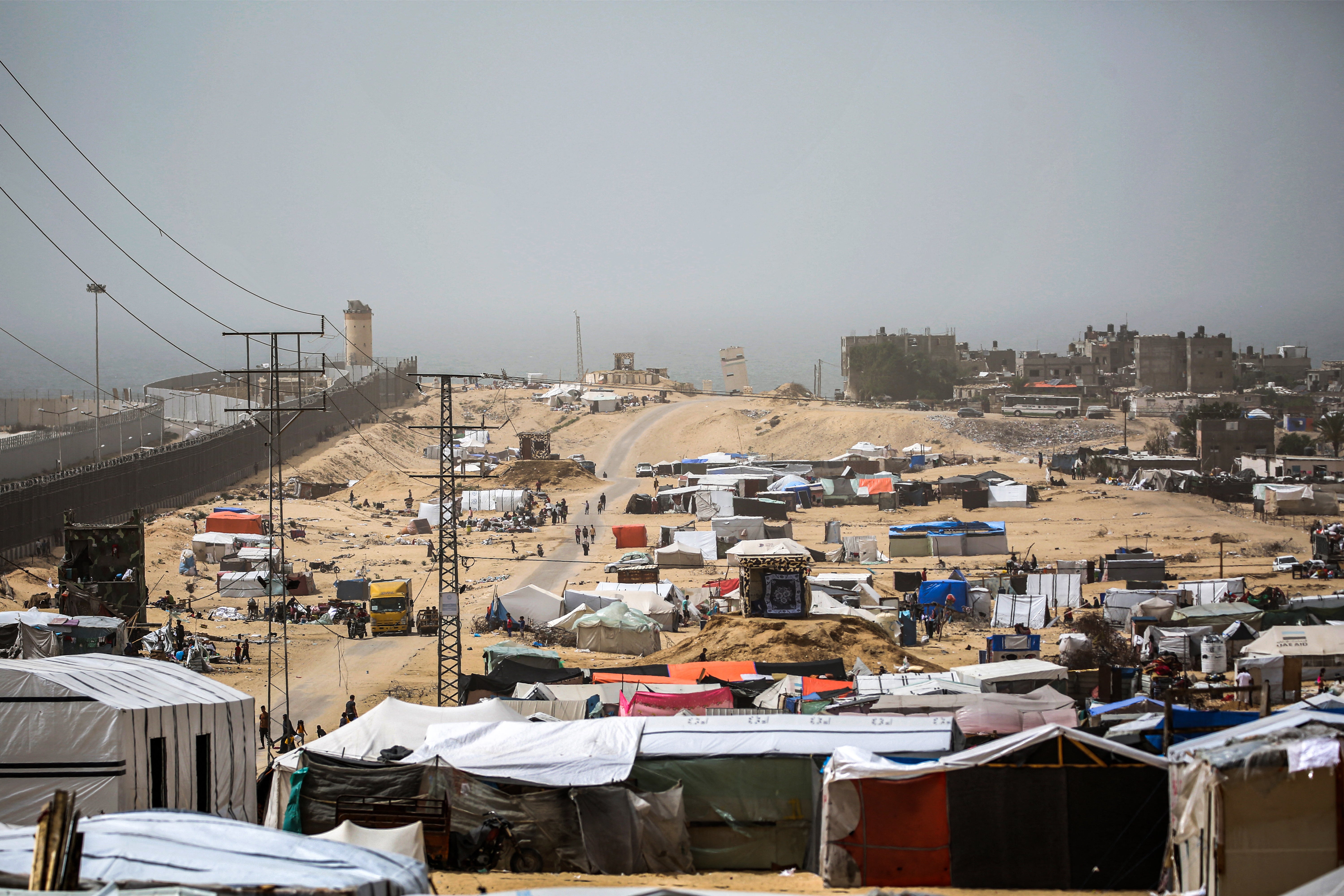
On Saturday night, Israel’s military spokesperson Rear Admiral Daniel Hagari said his troops continued to fight in all parts of the Gaza Strip.
“We will continue to fight in order to create a security situation that will allow the residents of the north and the south to return home safely,” he said in a televised message.
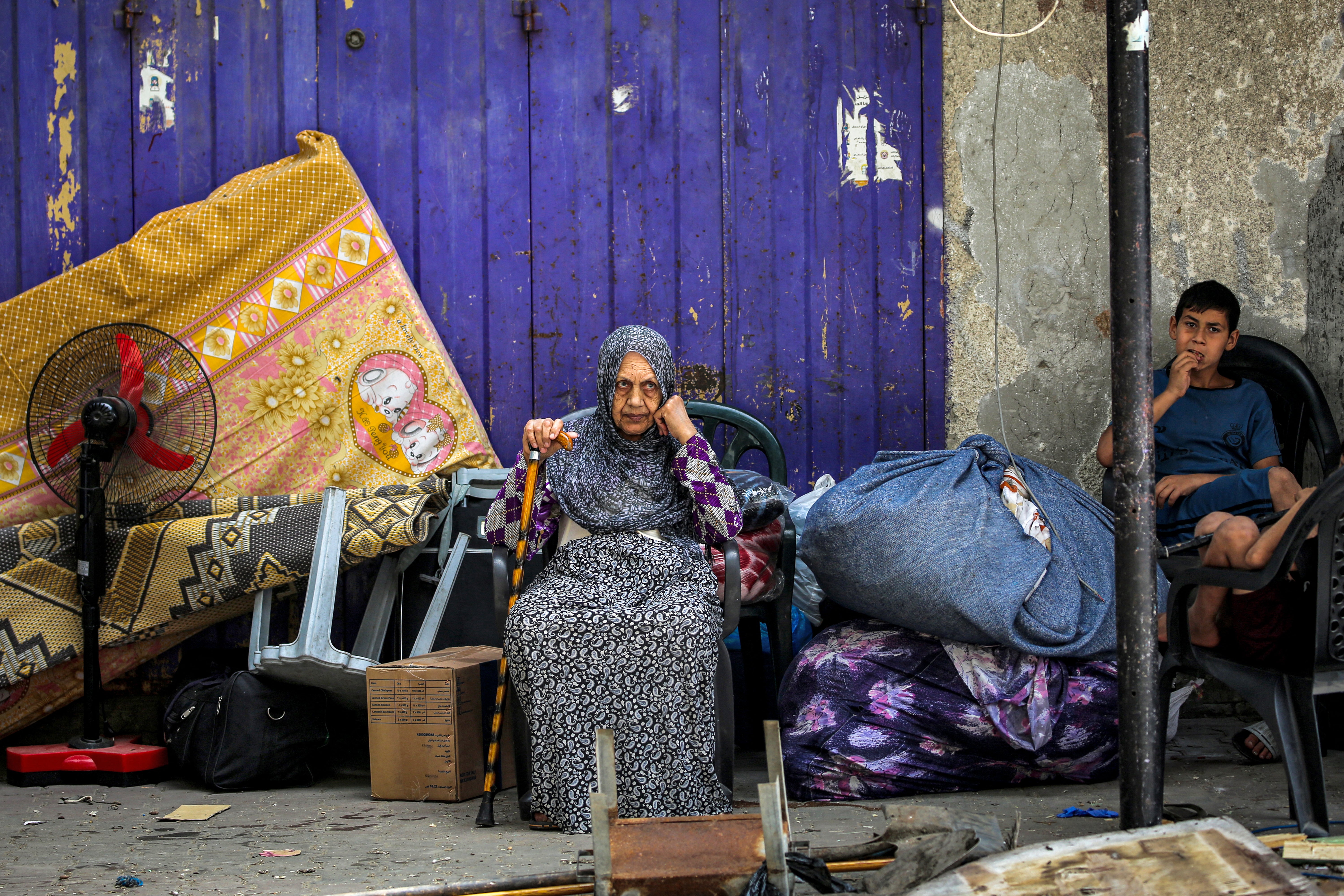
Residents and displaced people in the Jabalia area of northern Gaza are being evacuated, with Rear Admiral Hagari claiming Hamas was trying to re-establish its control of the area.
The Palestinian Health Ministry said at least 37 Palestinians, 24 of them from central Gaza areas, were killed in overnight airstrikes on Friday across the enclave.
More than 1.4 million Palestinians – half of Gaza’s population – have been sheltering in Rafah, most after fleeing Israel’s offensives elsewhere.
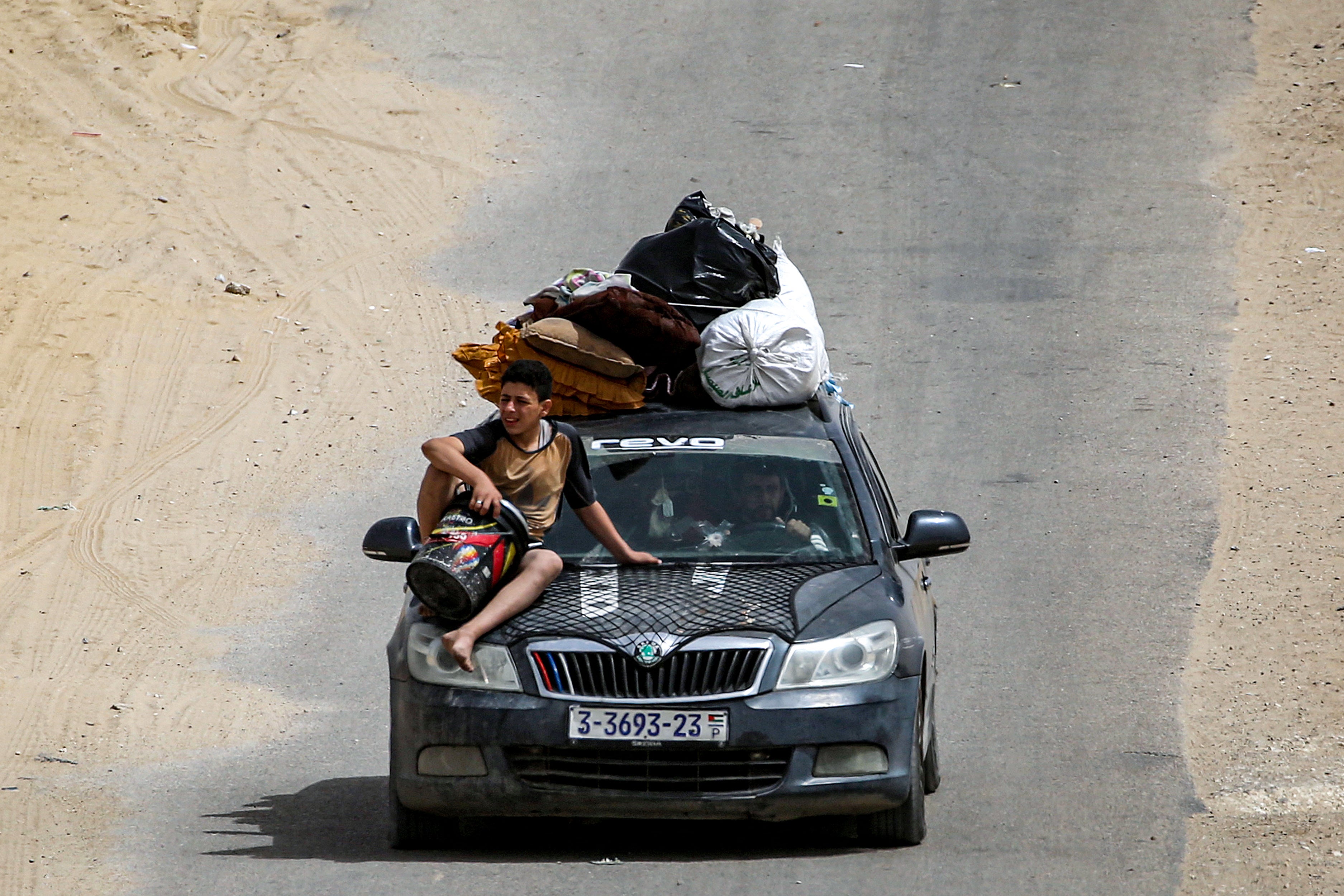
Considered the last refuge in the strip, the evacuations from Rafah are forcing people to return north where areas have been devastated by previous Israeli attacks.
Some Palestinians are being sent to what Israel has called humanitarian safe zones which are already packed with about 450,000 people in squalid conditions. The rubbish-strewn camp lacks basic facilities.
Mohammad Mansour, 44, told The Independent: “We are leaving the place to escape death, a human tragedy that is renewed once again, in search of a safe area.
“A million and a half people are wandering around, carrying whatever food they can find.
“We don’t know where to go. All places are affected by the Israeli flames. The areas that the occupation claims are safe do not have any human services.
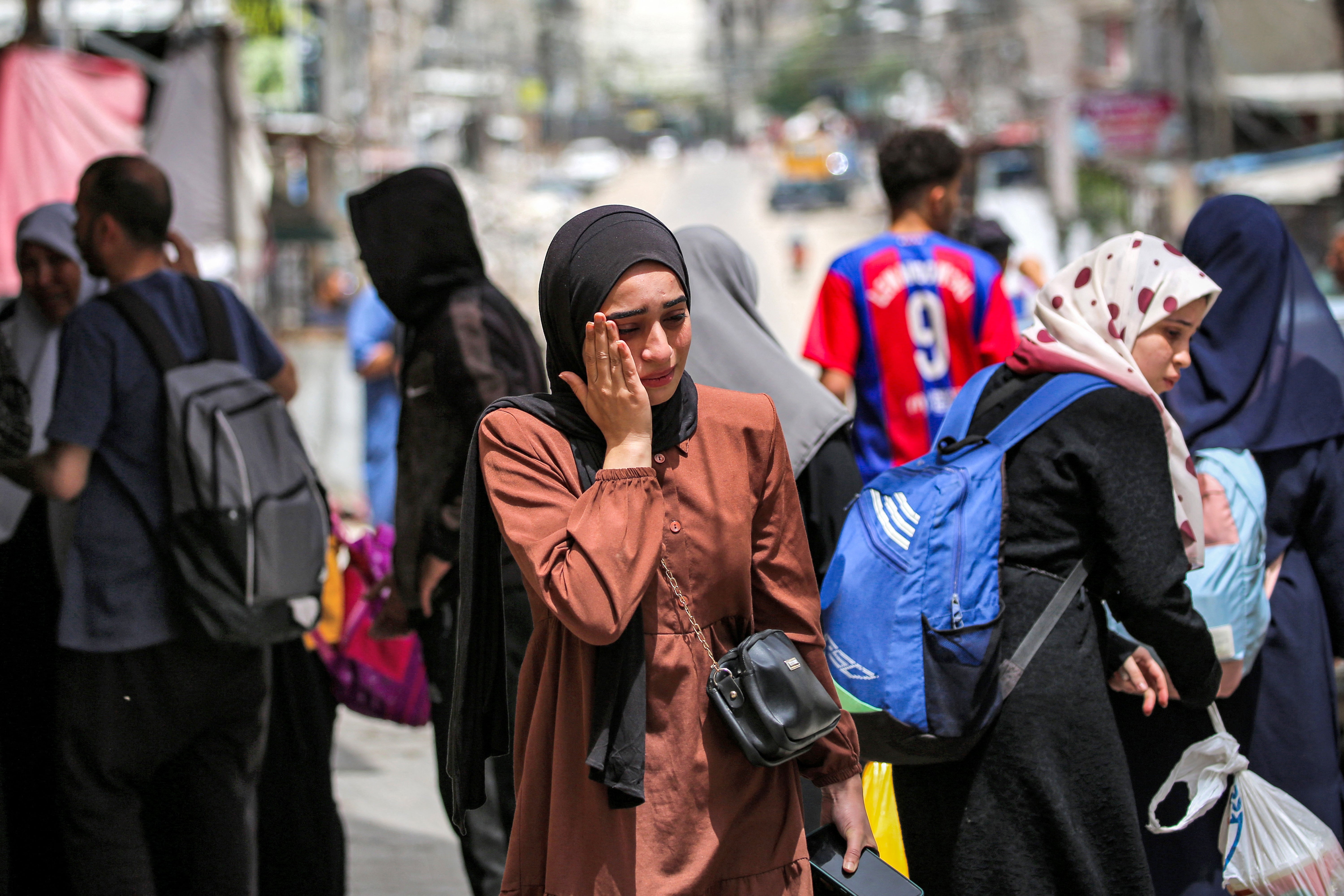
“There is no food there. Here in the Gaza Strip, death threatens everyone. Death besieges those who stay and those who flee. Even people don’t have the money to move.
“There is a big lack of food. There is no drinkable water. Health services are suspended.”
Israel has now evacuated the eastern third of Rafah, and Rear Admiral Hagari said dozens of militants had been killed there as “targeted operations continued”.
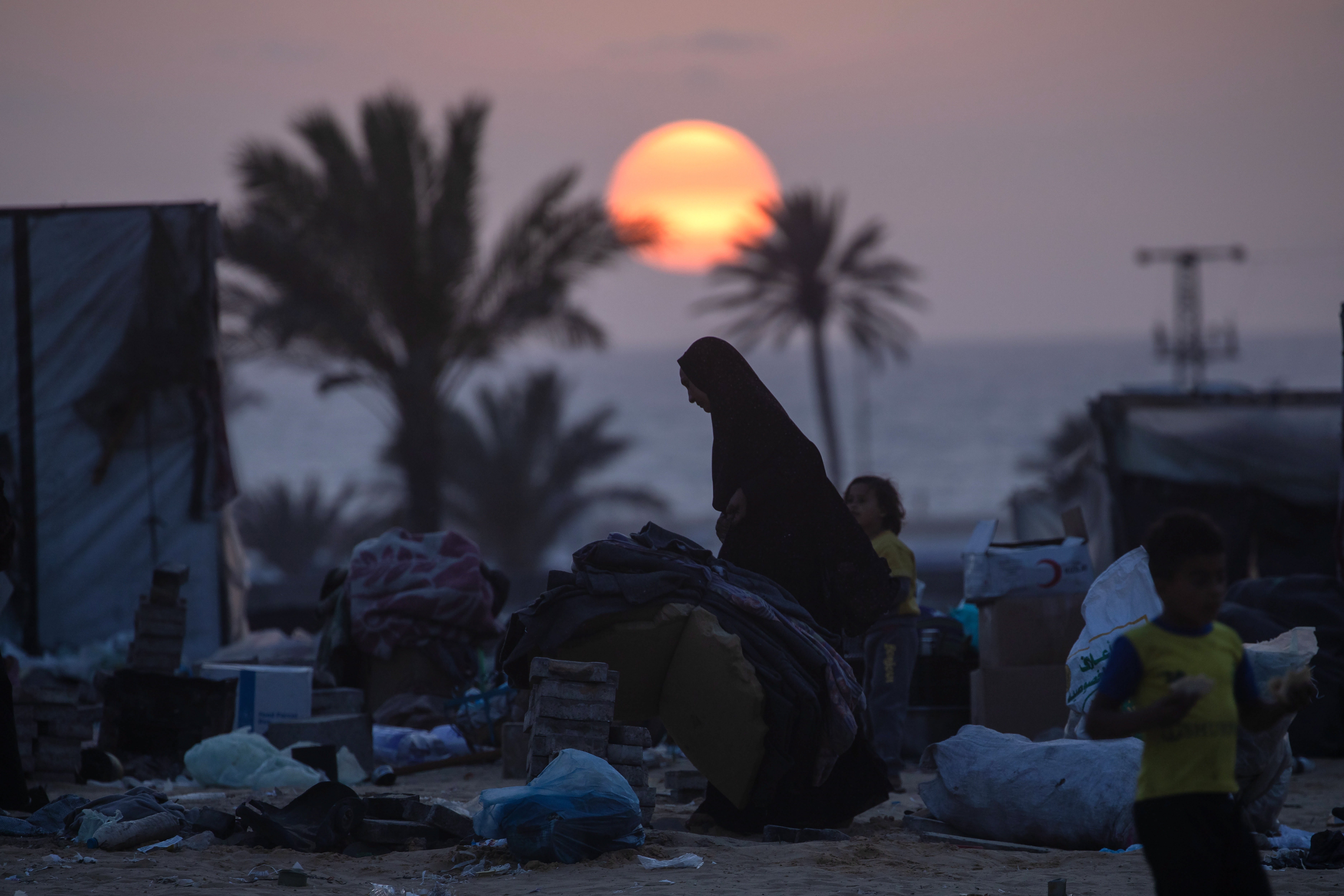
Israeli forces have captured the Gaza side of the Rafah crossing with Egypt, forcing it to shut down.
“Do we wait until we all die on top of each other? So we’ve decided to leave. It’s better,” said Rafah resident Hanan al-Satari as people rushed to load mattresses, water tanks and other belongings onto vehicles.
“The Israeli army does not have a safe area in Gaza. They target everything,” said Abu Yusuf al-Deiri, who was earlier displaced from Gaza City.
The United Nations has warned the planned full-scale Rafah invasion would further cripple humanitarian operations and cause a surge in civilian casualties.
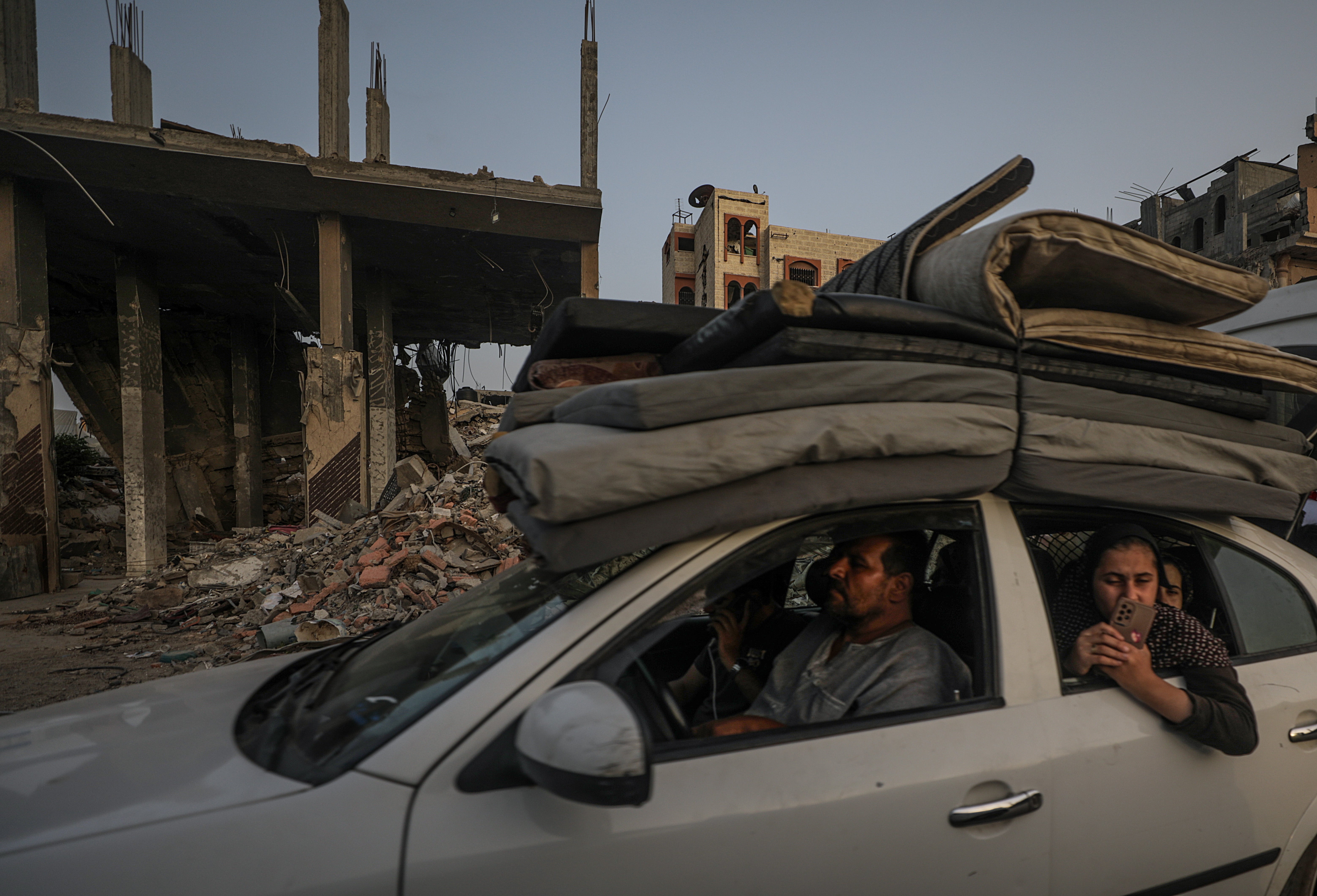
The order comes in the face of heavy international opposition and criticism.
US president Joe Biden has already said he will not provide offensive weapons to Israel for Rafah, and Washington said there was “reasonable” evidence that Israel had breached international law protecting civilians in the way it conducted its war against Hamas - the strongest statement the Biden administration has made on the matter.
On Saturday, German chancellor Olaf Scholz said a ground attack on Rafah by Israel would be irresponsible and lead to a massive loss of civilian lives.
Join our commenting forum
Join thought-provoking conversations, follow other Independent readers and see their replies
Comments